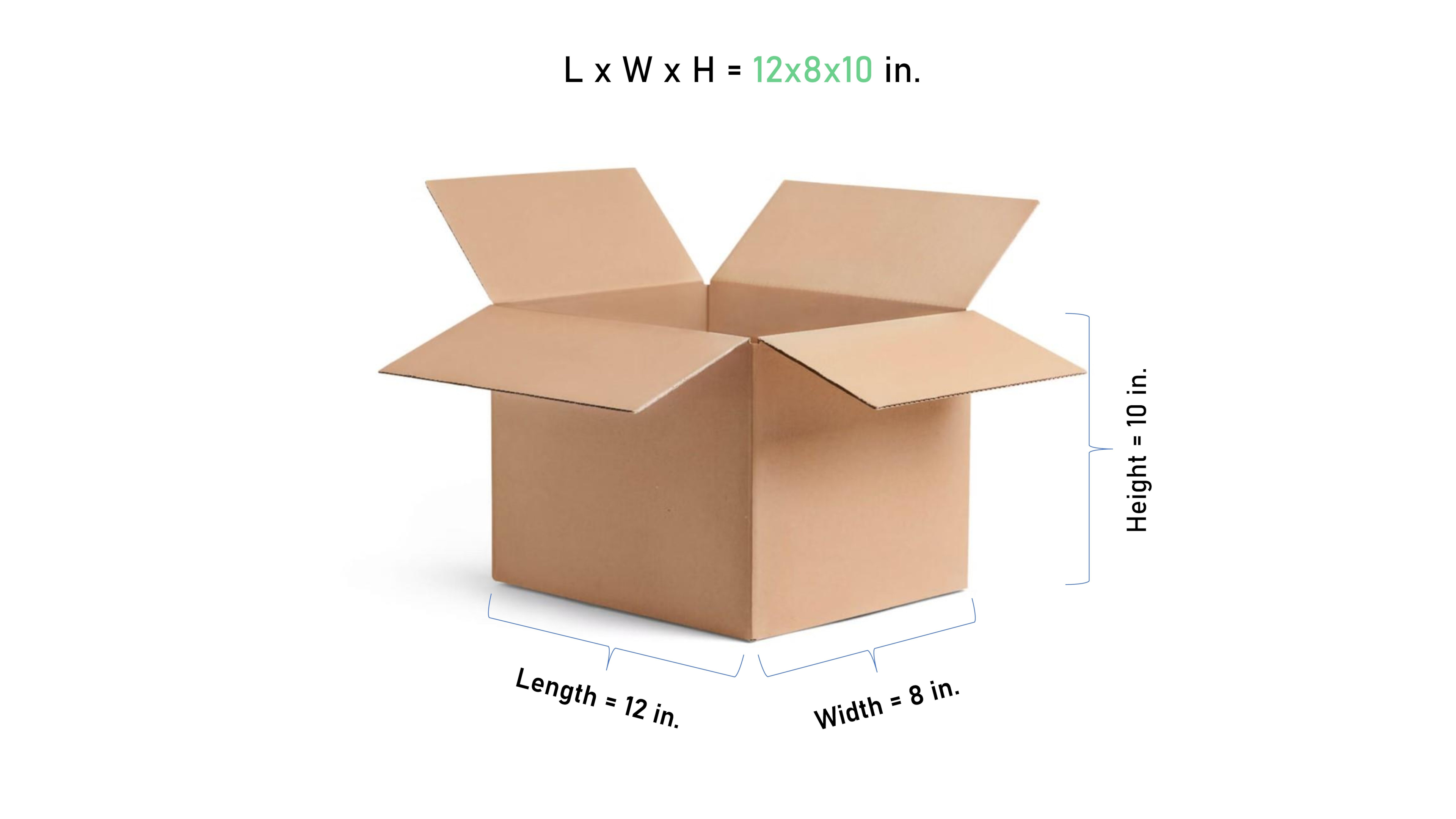Box Trucks For Sale In Houston Texas: A Comprehensive Buyer’s Guide types.truckstrend.com
Houston, Texas, a sprawling metropolis renowned for its robust economy, bustling ports, and intricate logistics networks, stands as a prime hub for commerce and industry. In such a dynamic environment, the efficiency of goods movement is paramount, and few vehicles are as central to this as the humble yet incredibly versatile box truck. Whether you’re a small business owner looking to expand your delivery capabilities, a moving company in need of reliable fleet additions, or an entrepreneur envisioning a mobile business, understanding the landscape of Box Trucks For Sale In Houston Texas is crucial.
This comprehensive guide aims to demystify the process of acquiring a box truck in the Bayou City. We’ll delve into the various types available, highlight the best places to find them, and provide essential considerations and practical advice to ensure you make an informed and successful purchase. By the end of this article, you’ll be well-equipped to navigate the Houston market and drive away with the perfect box truck for your needs.
Box Trucks For Sale In Houston Texas: A Comprehensive Buyer’s Guide
Why Choose a Box Truck for Your Houston Business?
Box trucks, often referred to as straight trucks or cube trucks, are distinctive for their separate chassis and enclosed, cube-shaped cargo area. Their design offers an unparalleled combination of capacity and maneuverability, making them an indispensable asset for a wide array of businesses in a city like Houston.
- Versatility: From local deliveries of furniture, appliances, and retail goods to serving as a mobile workshop, food truck, or even a specialized transport unit for delicate equipment, box trucks are incredibly adaptable. Their enclosed cargo space protects goods from the elements, ensuring safe transit.
- Cost-Effectiveness: Compared to larger semi-trucks, box trucks are generally more affordable to purchase, operate, and maintain. Many models do not require a Commercial Driver’s License (CDL), significantly reducing operational overheads by expanding the pool of eligible drivers.
- Ease of Operation: Their relatively compact size, especially light and medium-duty models, makes them easier to navigate through Houston’s urban streets, industrial parks, and tight loading docks compared to articulated vehicles.
- Branding Opportunities: The large, flat surfaces of a box truck provide an excellent canvas for vehicle wraps and branding, turning your truck into a mobile billboard that boosts your business’s visibility across Houston.
- High Demand in Houston: As a major logistics and distribution center, Houston’s economy thrives on the movement of goods. The city’s diverse industries, from oil and gas to healthcare, retail, and construction, all contribute to a constant demand for reliable transport solutions, making box trucks a valuable investment.

Types of Box Trucks Available in Houston
When searching for Box Trucks For Sale In Houston Texas, understanding the different classifications and features is vital to selecting the right vehicle for your specific application.
By Gross Vehicle Weight Rating (GVWR)
The GVWR indicates the maximum operating weight of a vehicle as specified by the manufacturer, including the vehicle’s chassis, body, engine, fuel, accessories, driver, passengers, and cargo.

- Light-Duty Box Trucks (Class 3-4): Typically ranging from 10,001 to 16,000 lbs GVWR, these are often built on Ford E-series or F-series, Chevrolet Express, or similar chassis. They are ideal for local deliveries, moving household goods, or small-scale commercial operations. Most light-duty box trucks do not require a CDL.
- Medium-Duty Box Trucks (Class 5-6): With GVWRs from 16,001 to 26,000 lbs, these trucks, often from manufacturers like Isuzu, Hino, or Freightliner, offer greater cargo capacity and durability. They are commonly used for larger freight, refrigerated transport, or more demanding delivery routes. Trucks under 26,001 lbs GVWR generally do not require a CDL for non-hazardous materials, making them highly popular.
- Heavy-Duty Box Trucks (Class 7-8): Exceeding 26,001 lbs GVWR, these are the largest box trucks, often used for specialized hauling or long-distance freight. These typically require a CDL to operate.

By Body Type and Features
Beyond weight classes, box trucks come with various features tailored to specific cargo needs:
- Dry Van Box Trucks: The most common type, featuring a simple enclosed box for general cargo that needs protection from weather and theft.
- Refrigerated (Reefer) Box Trucks: Equipped with a refrigeration unit and insulated walls, these are essential for transporting perishable goods like food, pharmaceuticals, or flowers, maintaining precise temperature control.
- Liftgate Equipped Box Trucks: Many box trucks come with a hydraulic liftgate at the rear, significantly easing the loading and unloading of heavy or bulky items, especially when no loading dock is available.
- Ramp Equipped Box Trucks: An alternative to liftgates, some trucks feature a pull-out or fold-down ramp for rolling items on and off.
- Flatbed Box Trucks: While primarily flatbeds, some configurations include a partial box or storage compartments on the chassis.
- Specialized Builds: Custom box trucks can be designed for specific uses, such as mobile workshops, command centers, or even recreational vehicles.
By Fuel Type
- Diesel: Known for their durability, higher torque, and better fuel economy, especially under heavy loads. Diesel trucks generally have a higher upfront cost and more complex maintenance but longer lifespans.
- Gasoline: Typically less expensive to purchase and maintain, with simpler emission systems. Gasoline engines are often found in lighter-duty models and are well-suited for urban, stop-and-go driving.
Where to Find Box Trucks For Sale in Houston
Houston’s vast market offers numerous avenues for sourcing box trucks, ranging from brand-new models to well-used workhorses.
- New Truck Dealerships:
- Pros: Access to the latest models, manufacturer warranties, financing options, and certified service centers. You can customize new trucks with specific features.
- Cons: Highest price point.
- Examples: Major commercial truck dealerships for brands like Isuzu, Hino, Ford Commercial, Freightliner, Kenworth, and Peterbilt often have dedicated box truck inventory.
- Used Truck Dealerships:
- Pros: Significant cost savings, a wider variety of makes, models, and years, often quicker availability. Many reputable used truck dealers in Houston offer pre-inspected vehicles and sometimes limited warranties.
- Cons: Condition can vary, potential for hidden issues, warranties might be shorter or non-existent.
- Online Marketplaces:
- Websites: Commercial Truck Trader, TruckPaper, eBay Motors, Craigslist, and Facebook Marketplace are popular platforms.
- Pros: Immense selection, competitive pricing due to broad exposure, ability to filter by specific criteria.
- Cons: "Buyer beware" applies strongly here. Scams are possible, and detailed in-person inspection is crucial.
- Truck Auctions:
- Types: Public auctions, government surplus auctions, and fleet liquidation auctions (e.g., Ryder, Penske, U-Haul often sell off their older rental fleets).
- Pros: Potential for extremely low prices, especially for fleet vehicles that have been regularly maintained.
- Cons: "As-is" sales, limited opportunity for inspection, high risk of purchasing a vehicle with hidden problems. Knowledge of vehicle mechanics is highly recommended.
- Private Sellers:
- Pros: Direct negotiation with the owner, potentially finding a good deal from a motivated seller.
- Cons: No guarantees, no recourse after the sale, need to be vigilant about title issues and vehicle history.
Essential Considerations Before Buying a Box Truck in Houston
Purchasing a box truck is a significant investment. Thoughtful consideration of these factors will help you make a wise decision.
- Budget: Beyond the purchase price, factor in insurance, registration, maintenance, fuel costs, and potential modifications. Used trucks save on upfront costs but might incur more in maintenance.
- GVWR & CDL Requirements: Reconfirm the GVWR of any truck you consider and ensure it aligns with your drivers’ licenses. Operating a truck requiring a CDL without one can lead to severe penalties.
- Vehicle Condition (for Used Trucks):
- Engine & Transmission: Crucial components. Look for leaks, strange noises, smooth shifting.
- Brakes & Tires: Inspect wear, uneven tread, and brake fluid levels.
- Frame & Undercarriage: Check for rust, cracks, or signs of accident damage.
- Liftgate/Ramp: Test functionality.
- Electrical System: Check all lights, gauges, and accessories.
- Maintenance Records: Request full service history if available.
- Pre-Purchase Inspection (PPI): Always get a reputable, independent mechanic to inspect a used truck before purchase. This is the single most important step for used vehicle buyers.
- Mileage & Age: Lower mileage and newer models generally command higher prices but offer greater reliability and longer service life. High mileage trucks can be good value if well-maintained.
- Fuel Type: Consider your typical routes and loads. Diesel is better for heavy hauling and long distances, while gasoline might suit lighter, urban use.
- Specific Features: Do you need a liftgate, refrigeration, specific shelving, or tie-downs? Ensure the truck has the necessary features or can be affordably modified.
- Insurance & Registration: Commercial vehicle insurance in Texas can be costly. Obtain quotes early. Understand the Texas Department of Motor Vehicles (TxDMV) requirements for title transfer and registration.
- Financing Options: Explore various financing avenues:
- Dealership Financing: Convenient, but compare interest rates.
- Bank Loans: Your existing bank might offer competitive commercial vehicle loans.
- Specialty Commercial Lenders: Companies specializing in truck financing understand the industry better.
- SBA Loans: Small Business Administration loans can offer favorable terms for qualifying businesses.
The Buying Process – A Step-by-Step Guide
Navigating the purchase of a box truck in Houston can be streamlined by following a structured approach:
- Define Your Needs: Clearly outline the primary use of the truck, required cargo capacity, typical routes, essential features (e.g., liftgate, refrigeration), and your maximum budget.
- Research and Shortlist: Based on your needs, identify potential makes, models, and sellers (dealerships, online, auctions). Create a shortlist of trucks that meet your criteria.
- Contact Sellers & Ask Questions: For each shortlisted truck, inquire about its history (accidents, previous owners), mileage, maintenance records, reason for selling, and any known issues. Obtain the VIN.
- Inspect Thoroughly (In Person):
- Visual Inspection: Check for exterior damage, tire wear, fluid leaks, and the condition of the cargo box.
- Interior Inspection: Assess the cab’s condition, dashboard lights, and all controls.
- Test Drive: Listen for unusual noises, check brake effectiveness, steering, and transmission shifting. Drive on various road types if possible.
- Pre-Purchase Inspection (PPI): Schedule a PPI with an independent mechanic. This step is non-negotiable for used trucks.
- Negotiate Price: Based on your research and the PPI findings, negotiate the price. Be prepared to walk away if the deal isn’t right.
- Review Paperwork: Carefully examine the title, bill of sale, and any warranty documents. Ensure the VIN on the paperwork matches the truck.
- Arrange Financing & Insurance: Finalize your financing and secure commercial insurance coverage before taking possession.
- Complete the Sale & Transfer Follow all Texas DMV procedures for title transfer and registration. Ensure you receive a clear title and a signed bill of sale.
- Post-Purchase: Consider immediate preventative maintenance, and don’t forget to get your company’s branding applied!
Maintaining Your Box Truck in Houston
Once you’ve acquired your box truck, proper maintenance is key to its longevity and reliability, especially given Houston’s climate and heavy traffic.
- Regular Preventative Maintenance: Adhere to the manufacturer’s recommended service intervals for oil changes, fluid checks (transmission, brake, power steering), filter replacements, and tire rotations.
- Tire Care: Houston’s heat can be hard on tires. Regularly check tire pressure and tread depth.
- Brake System: Inspect brakes frequently, especially if you carry heavy loads or drive in stop-and-go traffic.
- Liftgate Maintenance: If your truck has a liftgate, lubricate moving parts, check hydraulic fluid levels, and ensure all electrical connections are secure.
- Find a Reliable Service Center: Establish a relationship with a commercial vehicle service center in Houston that understands the specific needs of box trucks and can handle both routine maintenance and unexpected repairs.
Box Truck Pricing Guide (Estimated)
Please note: Prices for Box Trucks For Sale In Houston Texas can vary significantly based on brand, year, mileage, condition, features, and market demand. This table provides general estimates.
| Truck Type | GVWR (lbs) | Condition | Estimated Price Range (USD) | Key Features / Notes |
|---|---|---|---|---|
| Light-Duty Dry Van | 10,001 – 14,000 | Used (5-10 yrs) | $15,000 – $35,000 | Ideal for local delivery, small businesses. |
| New | $45,000 – $70,000+ | Often gasoline, non-CDL. | ||
| Medium-Duty Dry Van | 16,001 – 26,000 | Used (5-10 yrs) | $25,000 – $55,000 | Versatile for larger freight, often diesel, non-CDL. |
| New | $60,000 – $95,000+ | Popular for moving companies. | ||
| Refrigerated (Reefer) | 14,001 – 26,000 | Used (5-10 yrs) | $35,000 – $70,000 | Essential for perishables, higher maintenance. |
| New | $80,000 – $130,000+ | Includes refrigeration unit cost. | ||
| Liftgate Equipped | 10,001 – 26,000 | Used (5-10 yrs) | $20,000 – $60,000 | Adds significant convenience for heavy items. |
| New | $50,000 – $100,000+ | Cost depends on liftgate type/capacity. | ||
| Heavy-Duty Dry Van | 26,001+ | Used (5-10 yrs) | $40,000 – $80,000 | Requires CDL, larger capacity for specialized freight. |
| New | $90,000 – $150,000+ | More robust chassis and engine. |
Frequently Asked Questions (FAQ)
Q1: Do I need a CDL for a box truck in Texas?
A1: Generally, no CDL is required for box trucks with a Gross Vehicle Weight Rating (GVWR) of 26,000 lbs or less, as long as you are not transporting hazardous materials requiring placarding or operating a vehicle designed to transport 16 or more passengers (including the driver). For trucks over 26,000 lbs GVWR, a Class B CDL is typically needed.
Q2: What’s the average lifespan of a box truck?
A2: A well-maintained box truck, especially a diesel model, can last 300,000 to 500,000 miles or even more. Gasoline models might have a slightly shorter lifespan but can still offer many years of reliable service with proper care.
Q3: Is it better to buy a new or used box truck?
A3: This depends on your budget, business needs, and risk tolerance. New trucks offer reliability, warranty, and the latest features but come at a higher cost. Used trucks are more affordable upfront but may require more immediate maintenance and carry higher risk without a thorough inspection. For many small to medium businesses, a well-inspected used truck offers excellent value.
Q4: How much does box truck insurance cost in Houston?
A4: Commercial box truck insurance costs vary widely based on the truck’s value, GVWR, your business type, claims history, driver records, and the specific coverage you choose (liability, collision, cargo, etc.). Expect to pay anywhere from $3,000 to $10,000+ annually. It’s crucial to get multiple quotes from commercial insurance providers.
Q5: Can I convert a box truck for other uses (e.g., RV, food truck)?
A5: Yes, box trucks are popular for conversions due to their spacious, enclosed cargo area. They are frequently converted into RVs, tiny homes, food trucks, mobile workshops, or specialized service vehicles. However, ensure the conversion complies with all local zoning, health, and vehicle regulations, especially in a city like Houston.
Q6: What are common problems with used box trucks?
A6: Common issues include engine problems (e.g., turbocharger issues in diesels, worn spark plugs in gasoline), transmission wear, brake system issues (pads, rotors, calipers), suspension component wear, tire degradation, electrical problems (especially with liftgates), and rust on the chassis or box body. A pre-purchase inspection is key to identifying these.
Conclusion
Acquiring the right box truck in Houston, Texas, is a strategic move that can significantly enhance your business’s operational capabilities and efficiency. With Houston’s thriving economy and its position as a major logistical nexus, the demand for reliable commercial transport solutions continues to grow.
By understanding the different types of box trucks available, knowing where to find them, and meticulously considering factors like budget, condition, and operational requirements, you can make an informed decision. Remember that a thorough pre-purchase inspection, especially for used vehicles, is your best defense against unexpected problems. With careful planning and due diligence, you can successfully navigate the Houston market and secure a box truck that serves as a robust and dependable asset for your business for years to come.